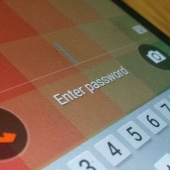-
Adware Found in Android App with over One Million Installs on Google Play Store
Security researchers from Dr.Web say they've identified a new malware family inside an Android app found on the Google Play Store under the name of "Multiple Accounts: 2 Accounts."
- November 15, 2016
- 08:10 AM
 0
0
-
WhatsApp to Get Two-Step Verification, Already Available in Beta Version
The extremely popular WhatsApp instant messaging client is set to receive support for two-step verification (2SV), a process which is often also (incorrectly) referred to as two-factor authentication.
- November 14, 2016
- 12:45 PM
 0
0
-
Smartphone WiFi Signals Can Leak Your Keystrokes, Passwords, and PINs
The way users move fingers across a phone's touchscreen alters the WiFi signals transmitted by a mobile phone, causing interruptions that an attacker can intercept, analyze, and reverse engineer to accurately guess what the user has typed on his phone or in password input fields.
- November 11, 2016
- 04:30 PM
 0
0
-
Internet Traffic From Mobile Browsers Exceeds Desktop Traffic for the First Time
In the month of October 2016, for the first time in history, traffic from mobile internet browsers surpassed traffic from desktop browsers, according to web analytics company StatCounter.
- November 11, 2016
- 03:07 AM
 0
0
-
iOS WebView Bug Can Force iPhones to Make Calls While UI Freezes
A bug in the iOS WebView component allows an attacker to force someone's iPhone to dial any number, while also locking the user's interface for a few moments, preventing him to cancel the outgoing call.
- November 09, 2016
- 05:20 PM
 0
0
-
November's Android Security Bulletin Patches Drammer and Dirty COW Exploits
Google released today Android's Security Bulletin for the month of November, which among a total of 83 security vulnerabilities has also patched two high profile bugs identified as Drammer and Dirty COW.
- November 08, 2016
- 02:40 PM
 0
0
-
Over 318,000 Android Users Affected by Auto-Downloading Malvertising Attack
Crooks distributing the Svpeng Android banking trojan have discovered a flaw in how Google Chrome for Android handles file downloads and have used it to forcibly and secretly download their malicious payload on the devices of over 318,000 users in the span of three months, starting with July 2016.
- November 08, 2016
- 04:25 AM
 0
0
-
Over One Billion Android Users Susceptible to App Hijacking via OAuth 2.0 Attack
Three researchers from the Chinese University of Hong Kong discovered a flaw in how app developers and identity providers support Single-Sign-On (SSO) via the OAuth 2.0 protocol, a flaw that allows an attacker to assume the identity of another person.
- November 07, 2016
- 08:00 AM
 0
0
-
Android Banking Trojans Based on GM Bot Infected Over 200,000 Users in the Past 3 Months
Over the course of three months, more than 200,000 users have downloaded apps infected with an Android malware derived from the source code of the GM Bot, Czech security firm Avast reports.
- November 05, 2016
- 05:20 PM
 0
0
-
Malicious Android Apps Use Obfuscation, Antiemulation Techniques to Avoid Detection
A set of malicious gaming applications for Android available on the Google Play Store employ obfuscation at multiple levels and antiemulation techniques to avoid detection. There are six malicious apps in total. They all advertise a different mod for Minecraft, the popular sandbox video game.
- August 10, 2016
- 01:00 PM
 0
0
-
Fake Prisma Apps Threaten 1.5M Android Users with Ads, Data Theft
Fake versions of the Prisma application for Android threaten as many as 1.5 million users with unwanted advertisements and data theft.
- August 05, 2016
- 09:00 AM
 0
0
-
Venmo Patches Flaws that Allowed Attackers to Steal $2,999.99 Using Siri
Martin Vigo, a security engineer for Salesforce.com, found a way to steal money from unsuspecting Venmo users using Siri. This flaw would have allowed an attacker to steal up to $2,999.99 dollars from a victim per weak.
- August 02, 2016
- 11:25 AM
 0
0
-
Android Trojan Threatens 2.8 Million Users with Unwanted Ads
A new trojan potentially threatens as many as 2.8 million Android users with unwanted mobile advertisements. On 29 July, researchers at the Russian computer security firm Doctor Web published an alert about the trojan, which goes by the name "Android.Spy.305.origin".
- August 01, 2016
- 03:00 PM
 1
1


 0
0














